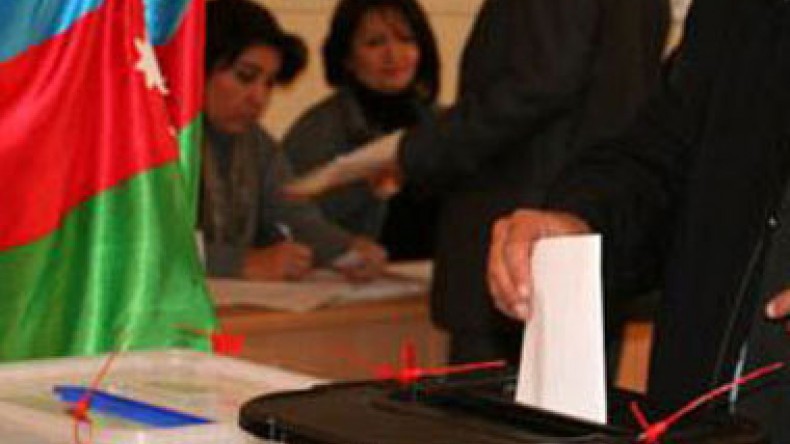
Journal of Democracy: Total electoral fraud in Azerbaijan reveals broken system of international election observation
Andreas Gross, a Swiss Social Democrat, having headed the election observation mission in Azerbaijan in November 2000, had no illusions about the quality of Azerbaijani democracy. He said that, after having observed thirteen elections in seven countries, it was the worst election fraud he saw, Gerald Knaus writes on Journal of Democracy website.
Yet Gross voted for Azerbaijan’s membership, convinced that shortcomings would best be corrected after accession, through pressure and support inside the organization. In 2001, Gross became a monitoring rapporteur for Azerbaijan. Already in January 2002, he warned Baku that if member states “do not follow the commitments and values, their membership in the Council is always at stake.” When, after the 2003 elections, hundreds of election officials and opposition supporters were arrested, PACE condemned the “excessive use of force” and warned that, absent progress, it might rethink Azerbaijan’s membership, Knaus writes.
The June 2005 parliamentary elections then turned out to be as bad as any. Gross felt that something had to be done. In January 2006, he and other parliamentarians launched a challenge to the credentials of the newly elected Azerbaijani delegation. However, in the Aliyev regime’s corner stood colorful supporters such as Leonid Slutsky, a Russian friend of Ilham Aliyev who condemned the very idea of sanctions. There was also Michael Hancock, a British Liberal Democrat, who argued that they were pointless given the longue durée of slow democratic evolution. And there was Robert Walter, a British Conservative. In the end, sanctions were rejected by 100 votes to 67. Gross’s idea that the Council of Europe could transform Azerbaijan had been defeated, according to Knaus.
As Azerbaijani sources told the European Stability Initiative in 2011, their government put ever more resources into an influence-building policy that its own officials called “caviar diplomacy.” During visits to Baku, deputies are given many expensive gifts, mostly expensive silk carpets, gold and silver items, drinks, caviar and money many other things. Many deputies are regularly invited to Azerbaijan and generously paid. In a normal year, at least 30 to 40 would be invited, some of them repeatedly. People are invited to conferences, events, sometimes for summer vacations, according to the article.
Behind caviar diplomacy’s success lay careful study of how decisions are made in Council of Europe institutions. Azerbaijan and its allies worked to secure posts within key forums. From these perches they could stop majorities from forming to back any decisions critical of Azerbaijan. Insiders in Strasbourg began to refer to a “dark coalition.” This informal coalition supported friends of the regime who were standing for key positions, as Knaus’s article reads.
The article further reads that in early 2011, the deputy head of the PACE election-monitoring mission, Polish ex-communist Tadeusz Iwiñski, told the assembly that the November 2010 parliamentary elections had been free and fair. His only complaint involved the long-term observers from the OSCE’s Office of Democratic Institutions and Human Rights (ODIHR) and their finding that Azerbaijan lacked the conditions “necessary for a meaningful democratic election.” In 2013, the British Conservative MP Robert Walter, leader of the PACE short-term election monitors, praised the country’s “free, fair and transparent” presidential election. By contrast, ODIHR, which had deployed a team of experts and long-term observers, saw overwhelming evidence of systemic fraud, with the counting process in 58 percent of observed polling stations assessed as bad or very bad.
The Azerbaijani elections of 2010 and 2013 reveal a broken system of international election observation. The problem is not just that electoral fraud has become routine, but that some of the very European institutions charged with safeguarding democracy appear determined to turn a blind eye to it. It is disturbing that none of this has triggered a serious investigation into how such a state of affairs has come about, Knaus stresses.
On 9 October 2013 presidential elections took place in Azerbaijan in which the incumbent president Ilham Aliyev won the elections with almost 85% of the vote, thereby taking the post for the third time. The head of National Council of Democratic Forces Jamil Hasanli was second after Aliyev with 5.5% of vote. The opposition declared that it wouldn’t accept the election results because the elections were totally violated by ballot-box staffing, “carousel” etc. OSCE Office for Democratic Institutions and Human Rights, U.S Department of State, The Ministry of Foreign Affairs of Britain and European Parliament called the elections undemocratic and inconsistent with OSCE standards.
Related:
ODIHR: Azerbaijani government should show political will to eliminate violations during election
Newsfeed
Videos






























